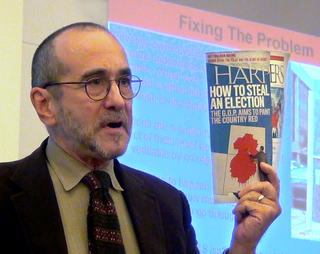A Quote by Godfrey Reggio
These films however, have ambiguity built into them, because it's too easy in film to make a strident work of propaganda or advertising, which are really the same thing anyway, meaning the message is unmistakable.
Related Quotes
I don't do commentaries on films because A) I'm not very good at it and B) it's an odd thing that I discovered, on my first film, that you go through this really intense experience of making a film and then you sit in a little room with a monitor and you reduce the thing to a bunch of silly anecdotes. It's really unfulfilling and I've never really enjoyed listening to them anyway, so I just don't do them.
I hate political films that have one particular message that they're trying to convey. I think propaganda is very dangerous, and it's very easy for anything to slip into it. I also think that propaganda is something that defies the identity of cinema. I hate propaganda in cinema, even if it was promoting the political stance that I myself am allied with. I always say that the responsibility of a film is first and foremost: To be a film. It's not a manifesto, it's not an op-ed.
The fact is that much of advertising's power comes from this belief that advertising does not affect us. The most effective kind of propaganda is that which is not recognized as propaganda. Because we think advertising is silly and trivial, we are less on guard, less critical, than we might otherwise be. It's all in fun, it's ridiculous. While we're laughing, sometimes sneering, the commercial does its work.
A war film can be propaganda and they're very valuable as propaganda, as we realized in Britain in the Second World War. Film as propaganda is a very valuable tool. It can also demonize, which is the dangerous side of a war film as propaganda. But there are war films that are not propaganda. It's just saying 'This is what it's like.' For 99 percent of us we don't know what it's like. We have no idea. So to reveal that to the audience is powerful.
Consider a movie: it consists of thousands upon thousands of individual pictures, and each of them makes sense and carries a meaning, yet the meaning of the whole film cannot be seen before its last sequence is shown. However, we cannot understand the whole film without having first understood each of its components, each of the individual pictures. Isn't it the same with life? Doesn't the final meaning of life, too, reveal itself, it at all, only at its end, on the verge of death?
What I want to do is make films that astonish people, that astound people, and I hope you want to do that too. It's easy to make money. It's easy to make films like everybody else. But to make films that explode like grenades in people's heads and leave shrapnel for the rest of their lives is a very important thing. That's what the great filmmakers did for me. I've got images from Fellini, from Bergman, from Kurowsawa, from Bunuel, all stuck in my brain.
I am convinced that if we lose kids to the culture of drugs and materialism, of violence and war, it's because we don't dare them, not because we don't entertain them. It's because we make the gospel too easy, not because we make it too difficult. Kids want to do something heroic with their lives, which is why they play video games and join the army. But what do they do with a church that teaches them to tiptoe through life so they can arrive safely at death?
I was so lucky because I started working very young. And my father was very wealthy and I didn't need to work. I did my films. I was very well paid for my age, and I could make choices, decide not to do a film for six months and wait until I'd get the right thing. Which made me quite a coward, you know. It's so easy to say no to stuff, and then, after a while, it's very hard to go back in.
But there's the rub. The present can never deliver one thing: meaning. The way of happiness and meaning are not the same. To find happiness, a man need only live in the moment; he need only live for the moment. But if he wants meaning--the meaning of his dreams, his secrets, his life--a man must reinhabit his past, however dark, and live for the future, however uncertain. Thus nature dangles happiness and meaning before us all, insisting only that we choose between them.
Like propaganda generally, advertising must thus pervade the atmosphere; for it wants, paradoxically, to startle its beholders without really being noticed by them. Its aim is to jolt us, not "into thinking," as in a Brechtian formulation, but specifically away from thought, into quasiautomatic action: "To us," as an executive at Coca-Cola puts it, "communication is message assimilation--the respondent must be shown to behave in some way that proves they [sic] have come to accept the message, not merely to have received it.




































